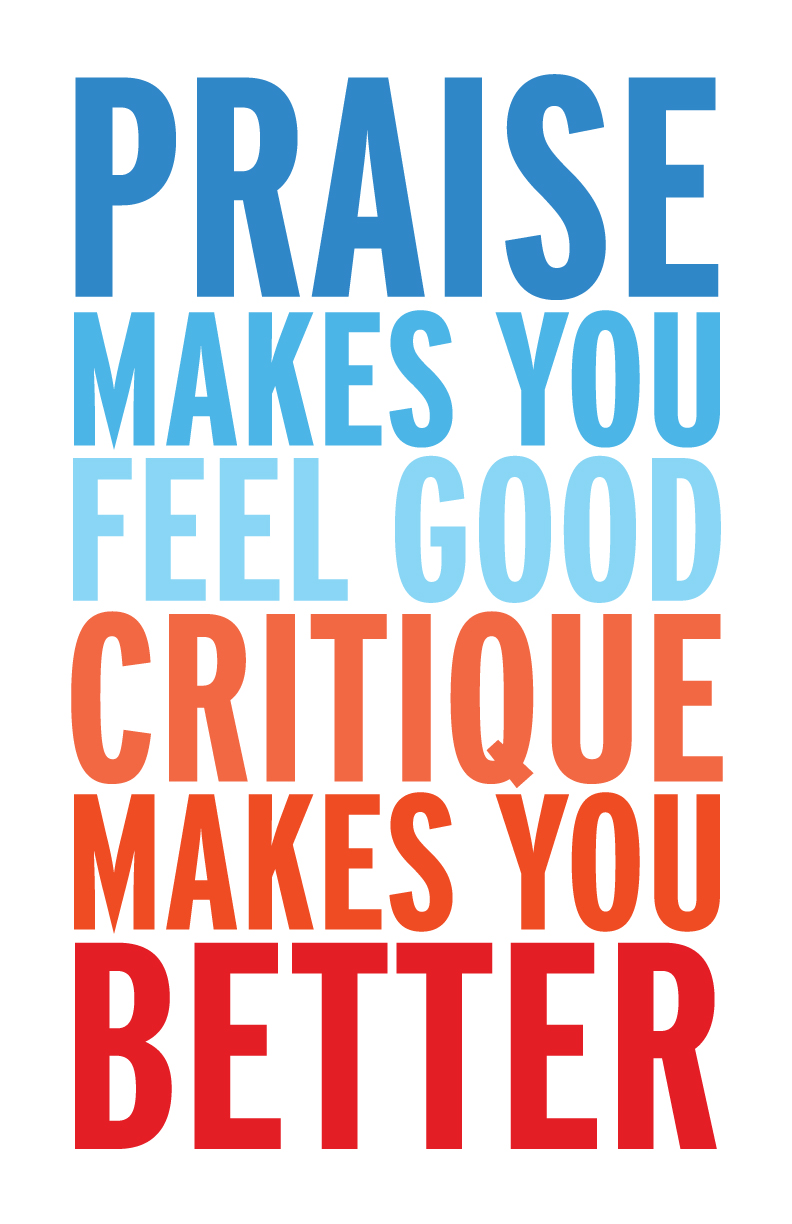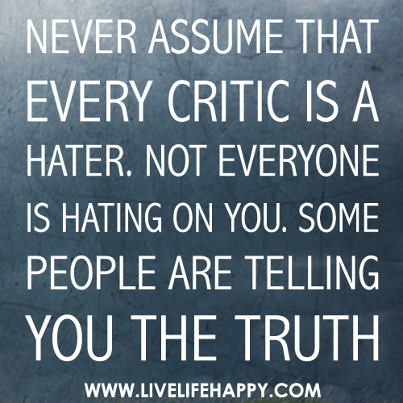At some point in our lives, as a reader, or a writer, we've been gotten or given constructive criticism.
Here's the difference between plain ole' criticism and constructive criticism.
Criticism is all negative. What you're doing wrong, all your mistakes, how you should've known better. Criticism can kill a writer's spirit.
 Constructive Criticism is negative AND positive. It points out your flaws and mistakes while complimenting your successes and telling you how to fix or improve on what you've done wrong. Constructive criticism is a learning experience and helps the author grow and mature as a writer.
Constructive Criticism is negative AND positive. It points out your flaws and mistakes while complimenting your successes and telling you how to fix or improve on what you've done wrong. Constructive criticism is a learning experience and helps the author grow and mature as a writer.* * * * * * *
For Readers:
If it's a first/early draft, there's going to be problems. It's guaranteed. It's impossible to have a polished piece without multiple revisions and corrections. Take that into consideration when reading an early draft. You're in for a garbage pile of problems. Unless the reader has specifically asked you for a detailed edit, you can gloss over the glaring problems like punctuation, spelling, and grammar, and focus more on what makes the story really great: flow, dialogue, story-line, characters, theme, etc. Those are the things that make an author great. Punctuation and grammar can be fixed in later revisions.
Now if you're reading what the author says is a final version, or if you're reading a published copy, there should be hardly any technical/grammatical mistakes. I've read/reviewed quite a few books in the last few years, mostly from self-published and indie authors, and unfortunately have seen a fair share of such mistakes in already published books. Maybe the author didn't receive any badly needed constructive criticism before publishing, but there's no excuse for finding so many mistakes in a published novel.
In these cases, it's very easy just to criticize. But you still need to keep in constructive! I've reviewed a couple books with such problems. The story itself was fine, but it had way too many technical errors. In those cases, I chose to contact the author personally with the problems I'd found with suggestions on how to correct them. My public review focused on the meat of the story, like I mentioned above, the flow, theme, characters, etc.
When passing on your constructive criticism, it's good to start with the positive. Mention what you liked and/or loved about what you read BEFORE diving in to what needed work. An author is more likely to take your constructive criticism and apply it if you start off this way.
Always remember that you're critiquing the writing not the writer. Don't make your critique personal, keep it focused on what you've read.
If you're reading a book with the express purpose of detailed critiquing, make sure you take notes from the start. If you've been given a print copy or manuscript, use a red pen and mark as you go. Dog-ear the pages so you can find them easily later. If you've been given a Microsoft document, turn on the track changes app and mark as you go. If you've been given an eBook, get some note paper out and write down your observations and corrections chapter by chapter. For eBooks, using the page read won't work because each eReader has different size pages. Start with chapter, paragraph, then line, to help the author find the places you're marking.
Remember: The most important things isn't what you liked and didn't like. It's why you like and didn't like. If you don't have a reason for your like or dislike, you aren't helping the writer learn anything.
For Author:
As an author, you need to be able to handle such feedback. A reader wouldn't contact you, point out your mistakes, and help you find ways to fix them, if they weren't trying to help you. The reader might have been in the same circumstances themselves at one point. Constructive criticism is teaching you something, and you need to be open to learning.
Remember that the you, the author, is separate from your work. The criticism is for something you wrote, not for you as the writer. Even if there's a lot of critique, it does not mean you are a bad writer. If you're receiving constructive criticism at all, it means that you are a good enough writer that the reader wants to invest their time in helping you become even better. And that should feel good.
 Constructive criticism and critiques are suggestions. You don't have to follow every one. Every reader has different tastes, maybe your novel was not in their comfort zone. If you get more than one critique for the same thing there's probably something you need to fix. But remember, you're the author, you have the power to change or not change anything about your story.
Constructive criticism and critiques are suggestions. You don't have to follow every one. Every reader has different tastes, maybe your novel was not in their comfort zone. If you get more than one critique for the same thing there's probably something you need to fix. But remember, you're the author, you have the power to change or not change anything about your story. On the same hand, don't let your hackles come up from pride and not listen to anything. Be open but realistic. Usually it's pretty easy to tell if someone is making a good suggestion or if it's because they just didn't jive with your story. If you're unsure if a certain suggestion NEEDS to be changed, try having a few other people read through the same section. If they're suggesting the same things, then you probably need to change it.
* * * * * * *
Constructive Criticism, especially for self-published authors, can be one of the only ways we can improve our writing. Traditionally published authors get plenty of it from their agent, editor, and publisher. Most of the time those authors have no choice about whether they want to fix it or not. As a self-published author, you have a lot more options on how you want to edit your work. Don't ignore good advice for the sake of your pride. Don't be afraid to ask readers or other authors to critique your work. Don't be upset when they find mistakes and make suggestions. It's all a part of becoming a great author.

